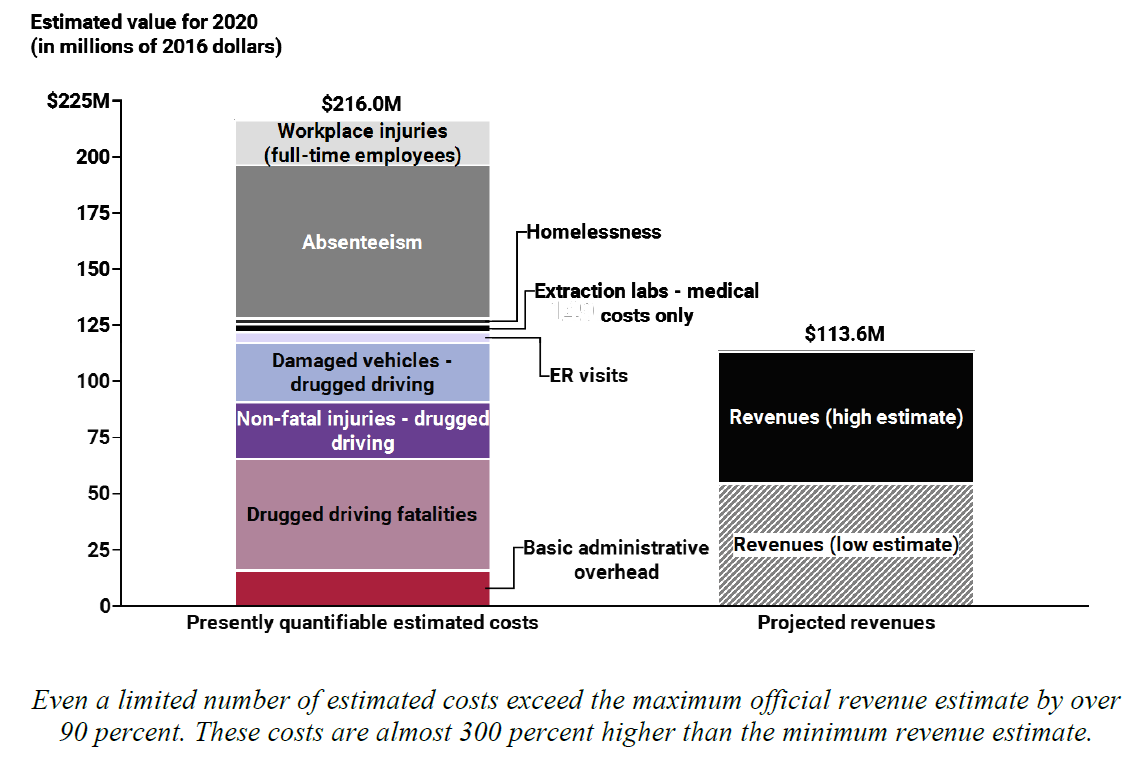
Report by prominent marijuana policy group finds costs would outweigh any tax revenue under legalization
HARTFORD, CT – Today, Smart Approaches to Marijuana (SAM), in conjunction with the Connecticut chapter of SAM (CT-SAM), released a comprehensive report on the projected costs of legalization in Connecticut — finding that legalization would cost the state $216 million, far outweighing even the rosiest tax projections. The report will be released today at 10 am in Room 1C of the Legislative Office Building in Hartford.
This report uses data from states like Colorado and figures from Connecticut Office of Fiscal Analysis to debunk the myth that taxed marijuana sales will be a boon to the state’s fiscal crisis. According to the report, marijuana legalization costs would “exceed, by more than 90 percent, the maximum projected official revenue estimate of $113.6 million for the third year of the proposed legalization program.”

“Everyone likes to talk about the assumed revenue that marijuana legalization would bring to a state, but no one likes to discuss the costs affiliated with such policy measures,” said Kevin A. Sabet, a former Obama Administration drug policy adviser who is now head of the anti-legalization group Smart Approaches to Marijuana (SAM). “This report will hopefully give lawmakers in Connecticut reason to pause and consider the implications of such policies.”
CT SAM was formed in response to the Connecticut legislature passing a medical marijuana law in 2012. CT SAM spokesperson Bo Huhn states, “Both state and national data demonstrate that our kids have increased access to marijuana as a result of laws allowing legal marijuana in our communities. And with the latest research on marijuana demonstrating the cognitive and social, emotional and psychological damage to the developing adolescent brain, we should be concerned! This new SAM report, using data from our own CT Office of Fiscal Analysis, demonstrates that CT taxpayers and businesses will bear the ensuing financial burden of this misguided policy in which costs will far outweigh any income.”
Deepak Cyril D’ Souza, MD, MBBS, Professor of Psychiatry, Yale University School of Medicine, stated, “By legalizing cannabis in CT, we will undoubtedly see an increase in adolescent cannabis use with many negative consequences years later. Is this what we want for our children and future adults?”
Adolescents who start using cannabis are more prone to a number of negative outcomes including lower IQ, memory and attentional problems that persist even if they stop using cannabis. Currently, rates among 12-17 year olds are among the highest levels nationally in states that have legalized some form of marijuana.
Sabet continued: “Marijuana legalization will lead to a new version of a Big Tobacco industry dedicated to profits that will increase addiction and undermine our youth and the vulnerable.”